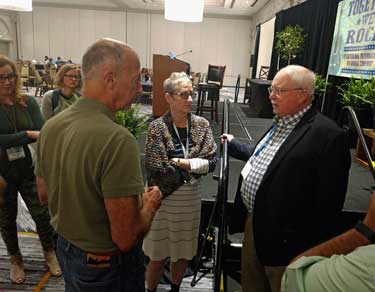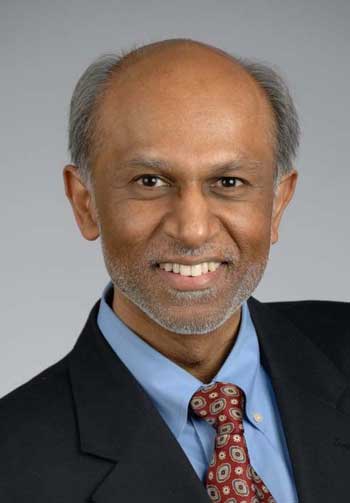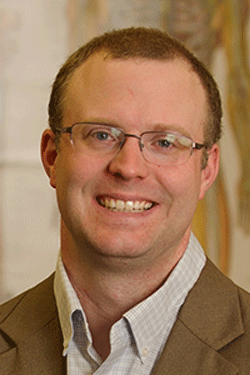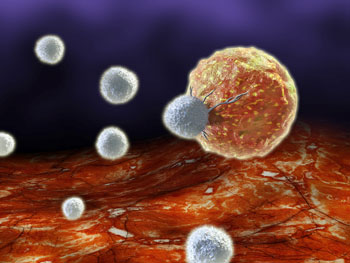


The online international ME/CFS conference features speakers from the US, Canada, Europe, Japan and Australia.
Something that’s never happened in thirty years is happening: the International Association for Chronic Fatigue Syndrome / Myalgic Encephalomyelitis (IACFS/ME) Conferences are happening one year apart. That’s presumably due to the newfound ease of hosting conferences online.
Founded in 1990, the IACFS/ME holds a unique place in the ME/CFS universe. The international organization for ME/CFS professionals (and patients can join and support as well) the organization produces international conferences, publishes a peer-reviewed journal “Fatigue: Biomedicine, Health, and Behavior”, produces position statements, and participates in medical education.
First, let’s note and thank the conference sponsors who are helping to make it possible to spread the latest chronic fatigue syndrome (ME/CFS) news far and wide:
- Kantor & Kantor – disability attorneys specializing in ME/CFS, long COVID, and similar illnesses.
- Open Medicine Foundation – proud supporter of no less than five ME/CFS research groups.
- Solve M.E. – researcher funder and ME/CFS and long-COVID legislative advocate extraordinaire.
- You+M.E. Patient Registry – Solve M.E. thrusts ME/CFS into the big time with its potentially groundbreaking ME/CFS and long-COVID patient registry.
- Institute for Neuroimmune Medicine – Nancy Klimas’s huge ME/CFS and Gulf War Syndrome, and now long-COVID, research effort involving supercomputers and patient trials.
With the connection between long COVID and ME/CFS pretty firmly established, and money beginning to pour into long-COVID research, this is an exciting time.
The conference runs from August 19-21, 2021. No need to gulp down too much coffee to stay engaged, this conference’s easy listening hours run from 10:00 AM to 3:30 PM (EDT) each day.
August 19th

Dr. David Kaufman (on the left) questioning a presenter at the 2018 Dysautonomia Conference.
August 19th, the first day, is as it usually is, split into sessions for professionals or patients. The Patient Day couldn’t start any better than with Jarred Younger (known as “the neuroinflammation man” on Health Rising) asserting that “To Conquer ME/CFS, We Must Conquer Neuroinflammation”!
Next comes a talk on orthostatic intolerance (OI) from the man who basically started the OI field in ME/CFS – Dr. Peter Rowe. Rowe has been collaborating on some groundbreaking papers with Dr. Visser in the Netherlands over the past couple of years.
Then another seminal figure – Dr. Larry Afrin – will talk on a subject that’s pretty much taken ME/CFS practitioners by storm over the past couple of years – mast cell syndrome. Michael VanElzakker – the originator of the Vagus Nerve Hypothesis – who is now working with Amy Proal – will then talk on “something”.
In what will surely be one of the most interesting talks for patients, one of our most creative and intellectually curious doctors, Dr. David Kaufman of the Center for Complex Diseases will tell us what he considers the “New Frontiers in ME/CFS”.
The title of Dr. Eleanor Stein’s talk, “Self-Management: The Biology of Change”, says it all about the fast-growing field of neuroplasticity. The idea that some forms of self-management can lead to biological changes is both fascinating and controversial.
After Irina Rozenfeld talks on how Integrative Medicine promotes healing, Kantor & Kantor will spend 45 minutes on a vital topic: “Long Term Disability Insurance Challenges for Individuals Living with ME/CFS”. Next comes a subject we don’t hear about enough – how environmental exposures can affect fatiguing illness – and lastly come two talks on using heart rate monitoring to improve your quality of life and avoid post-exertional malaise.
August 20th

Avindra Nath has turned out to be a strong spokesman for both ME/CFS and long COVID. He will speak on the similarities between the two.
Keynote Address – With Avindra Nath in the thick of it, both long COVID (2 studies) and ME/CFS (1 study), what better choice than Nath to kick off the research part of the conference with the keynote address. Nath will speak for 45 minutes on perhaps the key issue of the day, “ME/CFS and Long-COVID: Overlapping or Distinct Entities?”
So far, the symptoms seem similar but we know little about potential biological overlaps. Let’s hope Nath finally has some information to share from the very intense NIH ME/CFS Intramural Study – which, of course, set the stage for his almost as intense long-COVID studies.
More long COVID/ME/CFS presentations show up in the Infectious Diseases Section as John Chia reports on his study of ME/CFS patients with long COVID, and Lenny Jason compares long-COVID and ME/CFS symptoms. John Chia comes right back to report his new findings on enterovirus infections of the brain in ME/CFS.
Then comes my favorite part – the Provocation Section (i.e. the exercise studies)! There’s just nothing like an exercise study to get my heart pounding (which, come to think of it, may not be the best thing) and the exercise section is a strong one this year.
Rakib Rayhan has been doing exercise challenges with James Baraniuk at Georgetown University for almost ten years. He’ll be reporting on how an MRI showed that the brains of people with ME/CFS have an ‘altered resting state” after exercise. (My guess is that they’re not resting too much.)
Then, from Maureen Hanson’s Cornell ME/CFS research centers, Ludovic Giloteaux will show how an exercise test changes the protein content of the extracellular vesicles she’s been studying.

Todd Davenport of Workwell reports how ventilation or lung functioning is doing in ME/CFS.
Next, Todd Davenport of Workwell Foundation will explore a heretofore pretty much-unexplored aspect of exercise in ME/CFS – lung functioning. Exercise studies have shown that just about every other aspect of exercise (VO2 max, heart rate, etc.) is off in at least some people with ME/CFS. We’ll find out if something is going wrong with the lungs as well in Todd’s talk, “Ventilatory Functioning During Serial Cardiopulmonary Exercise Testing in People With and Without Myalgic Encephalomyelitis/Chronic Fatigue Syndrome“.
One of the nice things about Maureen Hanson’s ME/CFS NIH research center was the focus she put on using exercise to highlight the issues in ME/CFS. Another member of Maureen Hanson’s lab, Arnaud Germain, will tell us how post-exertional malaise alters the metabolomics, or metabolites, over time in our bodies.
Next, in the Biomarker Section, we will head north to Montreal to hear how circulating miRNA’s and irisin (irisin?) distinguish ME/CFS. If you don’t know what irisin is (I didn’t), it’s a recently discovered hormone that – get this – gets secreted from the muscles during exercise (!).

Irisin – a newly discovered hormone – gets secreted by the muscles during exercise. Is something up with irisin and ME/CFS? Find out in the conference.
After that potentially quite interesting talk, Laila Abdullah – a researcher I’ve never heard of – but who has a long track record of lipid research in Alzheimer’s and Gulf War Syndrome – will report on the apparently odd lipid profiles in ME/CFS.
The IACFS/ME threw James Baraniuk’s exercise study into a short Neurology Section. He will report on the effects of exercise on the arousal network in the brain. Finally, we’ll head down south as a Melbourne researcher, Elisha Josev, talks about brain white matter integrity (or the lack of it) in adolescents in ME/CFS.

With long COVID in the game, advocacy efforts can, and are, making a difference on an entirely different level.
Then in the Advocacy Section, we’ll have a full hour on the legislative efforts underway to boost ME/CFS and long-COVID research and treatment funding. We’ll probably need that hour. As the ME/CFS – long-COVID link has become more and more established, advocacy has become more complex – and more impactful over the past year. Kudos to Solve M.E. and others who recognized the opportunity that long COVID presents for everyone with a post-infectious illness, and shifted gears and became leaders in this new effort. There is a lot going on and this is a presentation not to be missed.
August 21st
The third and last day starts off with the Immunology Section and a hunt for a biomarker from Japan. Wakiro Sato from Japan will present on a biomarker using B-cells – which seem to present an almost inexhaustible source of study.

Are one of the big guns of the immune system – the T-cells – getting exhausted in both ME/CFS and long COVID?
Anna Gill of the University of Massachusetts is another researcher new to the field (the Conference is chock full of them). She’ll be talking about immune dysregulation and T-cell exhaustion in BOTH ME/CFS and long COVID. Let’s hope she’s finding some similar results. In his second talk of the day, Lenny Jason will take on one of the more important questions in ME/CFS – why one person versus another may be prone to coming down with a severe case of ME/CFS.
Next, in the Neurology Section – which seems a little light this year – Rudd Raijmakers of the Netherlands will suggest what we all know is possible – that different infectious triggers may be producing different types of ME/CFS – when he reports that he found no evidence of neuroinflammation in people whose ME/CFS was triggered by Q fever syndrome. Talks on cognition, severe and very severe ME/CFS, and something on ME/CFS and the coronavirus vaccines (by Elizabeth Unger), will follow.
The Clinical Section always has some interesting presentations. This year, Dr. Bonilla will talk on the latest and greatest (and most surprising) possible drug treatment option – Abilify. Tania Dempsey, a functional medicine MD, will present on a patient she treated, and in “Oxaloacetate Supplementation Provides Hope for Fatigue Amelioration in ME/CFS“, David Kaufman will talk on a mitochondrial supplement that he’s apparently very high on. Lastly, Ilene Ruhoy MD will bring autoimmunity and long COVID into the discussion when she talks on post-COVID cases of autoimmune encephalitis.

Oxaloacetate reaction from Wikimedia. Is oxaloacetate a fatigue buster?
Finally, in the second Provocation Section, Todd Davenport of Workwell will report that just two symptoms are needed to identify that post-exertional malaise (PEM) is happening. Since PEM needs to be distinguished from fatigue, my guess is that these symptoms may not be the ones that first come to mind. Lynnette Hodges of New Zealand will talk on what a repeated 5-minute exercise challenge did to ME/CFS patients’ physiology.
Lastly, after decades of summing up the conferences, Anthony Komaroff has apparently handed the reins of giving the final summary talk to Lily Chu MD. It’s a bit jarring not to see Komaroff there, but many thanks to him for being such a consistent and eloquent presence for so long.
Conference Registration
Besides the opportunity to catch up on the latest findings and treatment options for ME/CFS, there is also simply the opportunity to support our professional ME/CFS organization. Way back in 1990 – long before ME/CFS had any real recognition – Dharam V. Ablashi and Orvalene Prewitt founded the IACFS/ME to bring researchers, patients and advocates together. They knew that that’s what happens with major diseases, and indeed almost all major diseases have professional organizations. Some close to ME/CFS do not, though. Fibromyalgia, for instance, does not. One of the reasons to sign up for the conference is simply to support our professional organization, and ensure that it and these conferences will continue. (Note that becoming a member in addition to attending the conference gives you a discount for the conference.)
Registration is open from July 1, 2021 to August 18, 2021, 10 AM EDT. Register by August 12, 2021 and receive 25% off.
A variety of options for patients exist. (Professionals, please check out this page.)
| Patient/ Public 3 Days: Non-Member |
$200 | $266.67 | Patient/ Public Day + 2 days of research presentations. |
| Patient/ Public 3 Days: IACFS/ME Member | $150 | $200 | Patient/ Public Day + 2 days of research presentations. For IACFS/ME Associate Members. |
| Patient/ Public 1 Day: Non-Member |
$65 | $87 | Patient/ Public Day only. |
| Patient/ Public 1 Day: IACFS/ME Member | $50 | $67 | Patient/ Public Day only. For IACFS/ME Associate Members. |
Find out more about the Conference here – and register here.






Dr.Visser is Prof. Frans Visser and not from the UK, but from the Netherlands
A momentary lapse. I’m actually well aware he is from the Netherlands. Thanks for helping me to get him in the right country, though :). He, Linda Van Campen, and Peter Rowe have been doing some great work.
Cort- Will you be providing summaries of these talks?
So much of it sounds very interesting & hopeful, but I don’t have the capacity to listen for more than 15 minutes or so at a time.
Thanks for all you do!
I won’t do all the talks but I will do summaries of the talks that I find the most interesting and potentially helpful – at least as I see things.
I will look forward to your summaries Cort. I remember some engaging debates on Health Rising from last year’s IACFS/ME Conference.
Birdie, that’s a great question since living on disability prevents me from being able to afford a ticket to the conference.
And absolutely, thank you Cort for all you do!
What an amazing line-up! So different from the big ME/CFS I attended in 1997 in San Francisco. Real research, real findings. Thank you, Cort, for sharing this!
I agree that this is an incredible line-up of speakers especially on August 19th! Cort, do you know if the “professional workshops” are only for doctors or can other professionals attend/watch those specific lectures online? I was also curious if there are CEU credits offered or only CME credits for doctors?
When the conference was held in hotels I attended some of the professional sessions. Not sure about the online meeting or the credit idea.
Thank you for the info!
Cort, does online conference mean using Zoom?
Thanks for walking through the sessions as you did. When first saw the program, I did not understand the first day of separate sessions.
I imagine it does but am not sure…
Are we going to get any studies out of Klimas’s work? It seems like she has been doing research for ages, with little to show for it.
Apologies for my negativity, but I do tire of stories of researchers who seem to produce little of any real meaning over many years. I guess they are trying their best.
No worries. I don’t think I’ve done a blog on a Klimas study for quite a while. I just looked her up and she’s actually pumping out studies at a torrid pace but almost all of them have been on Gulf War Syndrome lately. Believe it or not – she’s co-authored no less than 17 studies on GWI in the past year and a half (!) That’s result of her getting huge Consortium grants from the DOD I believe to study it. She’s also developed a mouse model to study GWI – which has helped a lot.
She’s also, though, co-authored 3 studies on ME/CFS during that time. I just don’t think I’ve covered them.
Those GWI studies should inform her work on ME/CFS. Hopefully we will see more from her on ME/CFS in the future .
Will this event be available to view at a later time? via website? via Youtube? via Facebook? Our ME family member is not physically able (and I’m sure many ME people have the same issue) to register for a specific day/time for watching a monitor/screen . . . it is too stimulating and exhausting. Trying to keep a slow intermittent pacing for monitor viewing, so taking in small bits of information at a time is more productive, and more safe.
We still haven’t been able to get a treatment appointment for several years due closed patient lists or year-long wait lists. We are in Boise, Idaho and no physician ME options here, so, at least being able to watch this educational seminar would be hopeful. Thanks in advance for the reply.
I don’t know if they will be. If memory serves they were not in the past but I could be wrong.
If you could get over to Salt Lake City I wonder if you could get into the Bateman Horne Center….(?)
From IACFSME.org:
“ The meeting will also be recorded so that people unable to attend certain segments may watch the proceedings later at their convenience.”
Cool….
https://www.google.com/url?sa=t&rct=j&q=&esrc=s&source=web&cd=&cad=rja&uact=8&ved=2ahUKEwiqvLXQ8IHyAhVHbs0KHXE1Ap0QFjAAegQIAhAD&url=https%3A%2F%2Fwww.autoimmuneinstitute.org%2Farticles%2Fcovid-news-and-autoimmune-disease%2F&usg=AOvVaw0kwHe8g6JPXq5JwfUXQDtg
The Bateman Horne Center patient application portal is closed. No notification about when it will open. Family member is age 76. Bateman specifies age 70 and younger. Specifically, my sister had polio virus at age 7, Epstein Bar at age 12, repeated at age 20, again at 30, then herpes 6 at age 60. Symptomatic since age 7 with random windows of “normal.” Nonetheless, if Bateman sticks to the age 70 maximum, they won’t accept her. But it would amazing if they would. I could drive her to Salt Lake in 5 hours and pace the trip. Still searching. Thank you very much for your feedback. Back to original thought, will figure out a way to watch the event. Sounds exciting!
I’m hoping that all these long COVID clinics that are opening up will start accepting the real long haulers. Doctors would have to get up to speed for sure but hopefully over time we’ll have a new generation of more knowledgeable doctors. 🙂
Your sister really got whacked by a lot of viruses! Even polio virus (!)……I have a blog on enteroviruses coming up – interesting stuff!
Check out Four Peaks Healthcare in Flagstaff, AZ — the Doctor of Nurse Practitioning, Theresa Dowell, is very good and does telemedicine (phone or video). She did some of her training at the Bateman Horne Center and at Stanford with the ME/CFS docs.
Definitely check out Theresa if you can. She goes to all the conferences, has ME/CFS herself, and seems well up on everything.
Thank you for the conference highlights – am now registered!
🙂
“David Kaufman will talk on a mitochondrial supplement that he’s apparently very high on”
The suspense is killing me, Cort! Are you going to discuss the clinical section in your post-conference reporting?
Absolutely, I am really looking forward to his “New Frontiers” talk, and already have oxaloacetate marked to do a blog on. I had never heard of it until I heard he was high on it. :). That guy digs deep.
Just as a teaser. There’s more mitochondrial stuff coming but I can’t write on it yet. From the little I know thus far it’s pretty darn exciting, though.
Cort, you are truly a blessing with a wealth of information.
1991 was the year I became ill and, diagnosed.
I remember waiting at the mailbox, or looking out the window, for the CFIDS Chronicle,to arrive. Guess we have improved somewhat on communication. I will be sending you a donation, as traveling is costly.
Thank you Cort
Yes, I remember waiting for the Chronicle too. Eagerly browsing it and hoping that the answer was in each issue! Thanks!
The IACFS/ME has allowed Phil Parker to join their little club and even publish a rubbish paper [1] in their journal “Fatigue – Biomedicine, Health and Behavior” (“Fatigue” – really, in 2021?). Instead of charging patients $200 they should pay us to watch.
Do the actual medical investigators associated with IACFS/ME support using the “Lightning Process” on children? Do they know that Parker is already using the publication of his “paper” to promote his secret quackery that is likely to harm children?
As always, the “paper”, which is undisguised marketing, concludes with a plea for more money. Perhaps Parker will show up at the conference with his tin cup. NIH has a big pile of money to hand out and they’ve seldom excluded psychobabble in the past.
Many thousands of Long Covid people are already desperate for treatment and will be ripe for plucking by the LP “trainers”. Sending sick people to Phil Parker’s tender mercies will be an easy way to clear out the Long Covid clinic and get to the country club on time.
Nobody will be helped but no matter. Dealing with sick people is tedious and kinda icky. I’m sure Parker will be happy to help. For a modest fee, of course.
[1] https://www.s4me.info/threads/cbt-repackaged-or-a-novel-treatment-the-lightning-process-compared-with-uk-specialist-medical-care-for-paediatric-cfs-2021-anderson-et-al.21335/